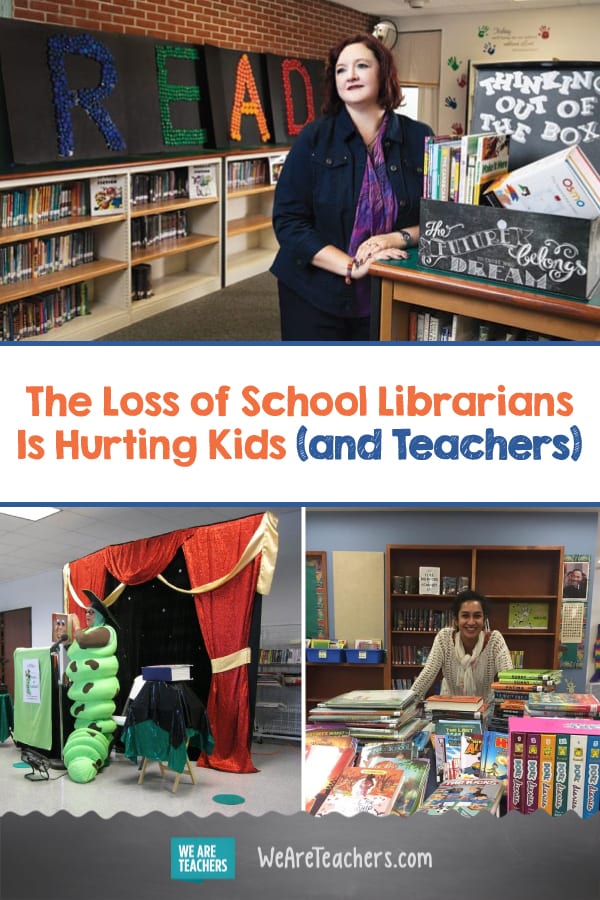Missing your school librarian? You’re not alone. The number of full-time school librarians decreased by 19 percent between the 1999–2000 and 2015–2016 school years (according to the School Library Journal). Essentially, the 2008 recession really hit school libraries hard, and they haven’t recovered. Libraries remain empty. Or they are being turned into classrooms or technology centers. There are also non-librarians running school libraries. And there has been little effort to start new libraries.
The problem is not all funding. The loss of school librarians can be attributed to lots of other factors: principal turnover, school technology initiatives that seem to make librarians obsolete (when the truth is the opposite), and hiring shortages that keep librarians out of schools.
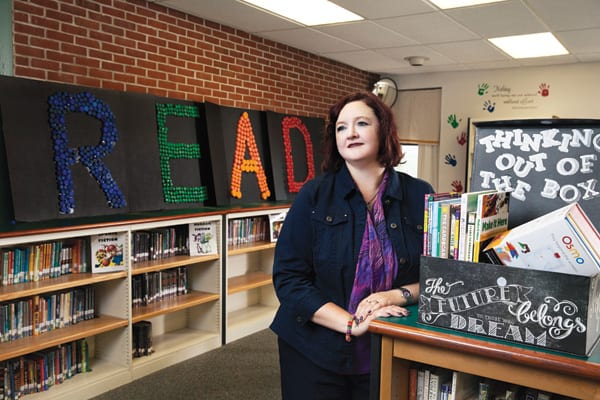
Kristina Holzweiss, 2015 School Librarian of the Year. Photo from: https://www.slj.com/?detailStory=meet-kristina-holzweiss-sljs-2015-school-librarian-of-the-year
Losing a librarian is about more than missing out on some book recommendations (though those are important). When schools don’t have librarians, kids and teachers feel the impact:
Students score lower on standardized tests.
We’ve known for a while that when schools have high-quality library programs, kids score better on standardized tests. This isn’t a vote for standardized tests, but it is a nod to library programs that help kids become better readers of any text they’re presented with.
Advanced readers don’t make as much growth.
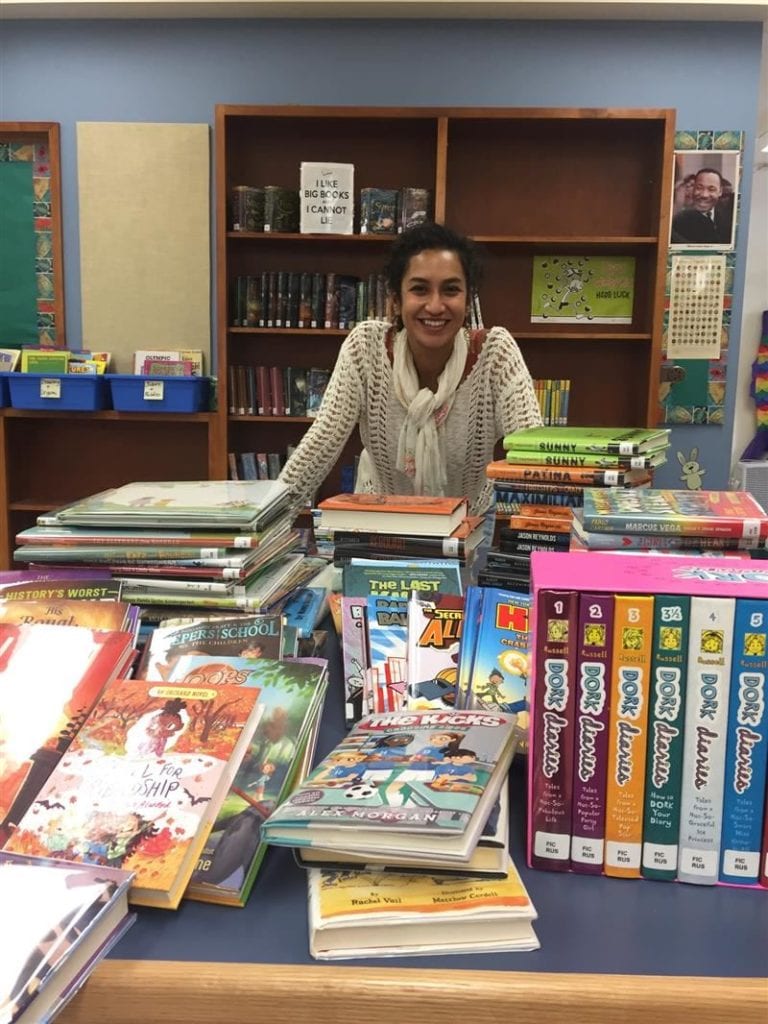
A librarian gets a shipment of new books. Photo from: https://www.ousd.org/domain/113
Maybe it’s because advanced readers need lots of book recommendations. Or perhaps it’s because librarians help advanced readers read more. But whatever the reason, one study from Colorado found that, when compared to schools that had lost librarians, schools that kept or added a librarian between 2005 and 2011 had more students who scored advanced in reading.
Low readers don’t get a boost.
When a school has a full-time librarian, there are fewer kids who score below basic in reading, meaning that those important “bubble kids” get a big boost from having someone on staff who knows how to reach them with just the right book.
Schools lose important courses.
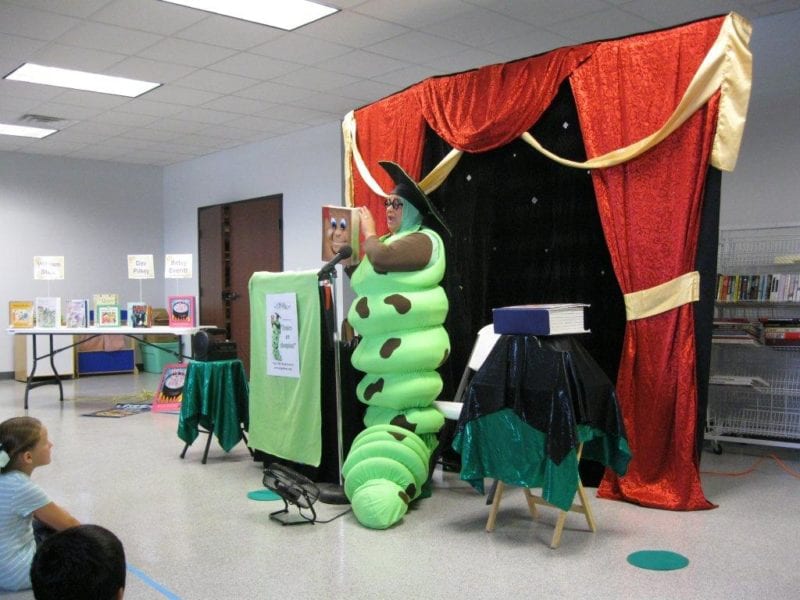
A bookworm event. Photo from: https://www.ctls.net/2015/07/lake-whitney-public-library-celebrates-successful-summer-reading-events/
Librarians do more than shelve books, they also teach classes, including technology and tutoring. Losing a librarian is like losing a teacher.
Schools also lose out on parent involvement.
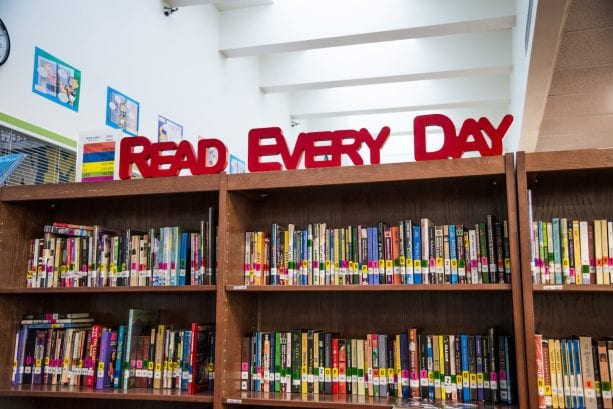
Photo from: http://azk12.org/homeroom/2017/07/12/fresh-ideas-to-spark-interest-in-your-school-library/
No one brings parents to schools like school librarians, who often plan, host, and promote their own events, from Dr. Seuss Day to read-a-thons. Librarians establish a reading culture that can extend beyond school walls.
Students are less prepared for college.
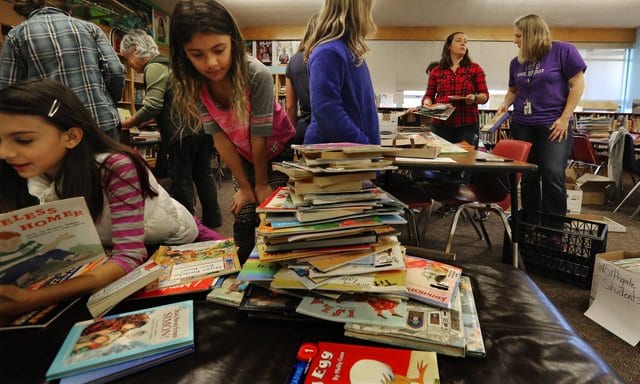
Two school librarians lead a book drive for the homeless. Photo from: https://www.seattletimes.com/education-lab/a-school-librarian-leads-drive-thats-netted-1000-books-for-homeless-students/
Librarians aren’t just for elementary school. As student progress, having media- and research-savvy librarians helps prepare students to excel in college by helping them develop their research skills, or their ability to find, evaluate, and use information. Without those librarians’ expertise, students are less prepared for the rigor of college-level work.
Lack of libraries widens the gap between rich and poor.
Low-income schools and schools serving other marginalized populations lost libraries and librarians at a greater rate than schools that don’t. This matters because school librarians are most important for students who are considered to be at risk. In fact, library programs matter the most for students who are from low-income households, have disabilities, or are marginalized in other ways.
Teachers lose a collaborative partner.
Librarians also bring a lot to teacher planning. They can recommend just the right books to round out a unit, ways to tackle a topic, and ideas for enhancing research and information gathering in the classroom. Taking a librarian out of the picture leaves also teachers without an important resource.
The good news is that when districts advocated for school librarians and libraries, they were able to keep or add them.
We’d love to hear—what’s been your experience with the loss of school librarians? Come share in our WeAreTeachers HELPLINE group on Facebook.
Plus, ways to build a school-wide reading culture.
